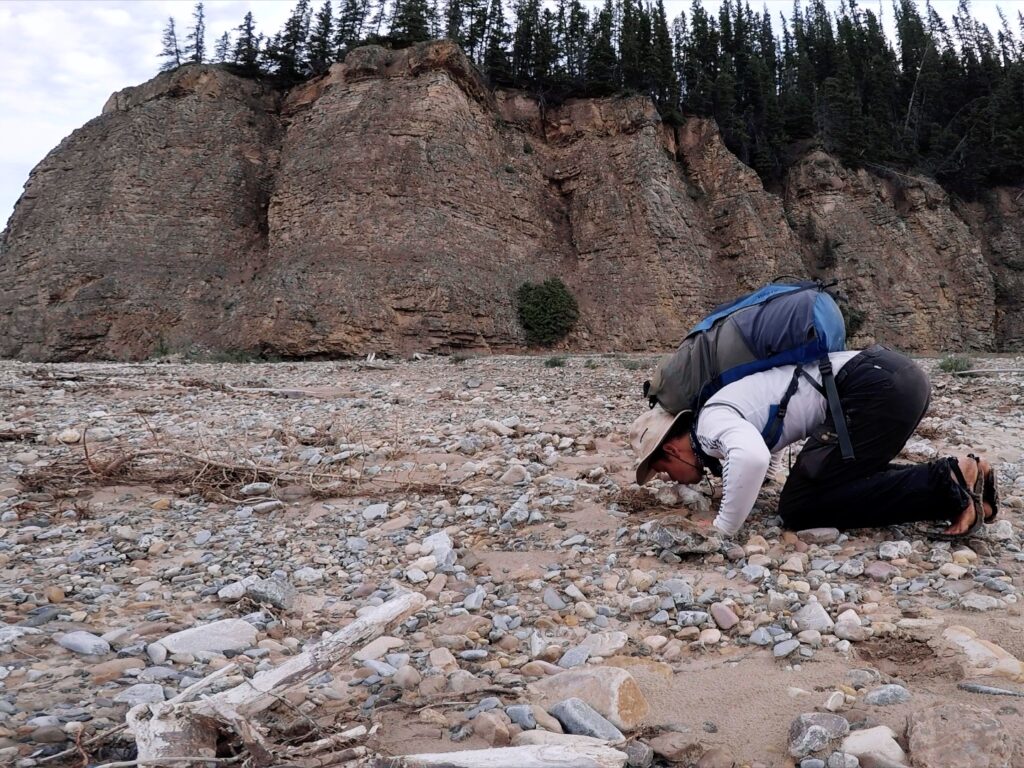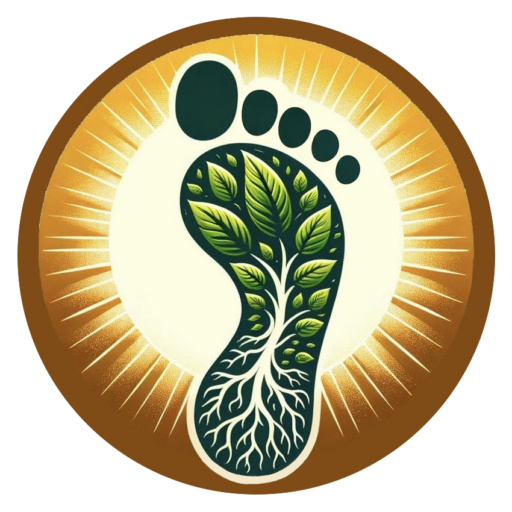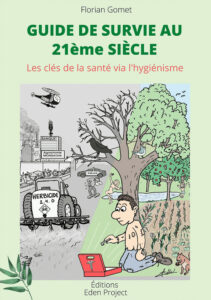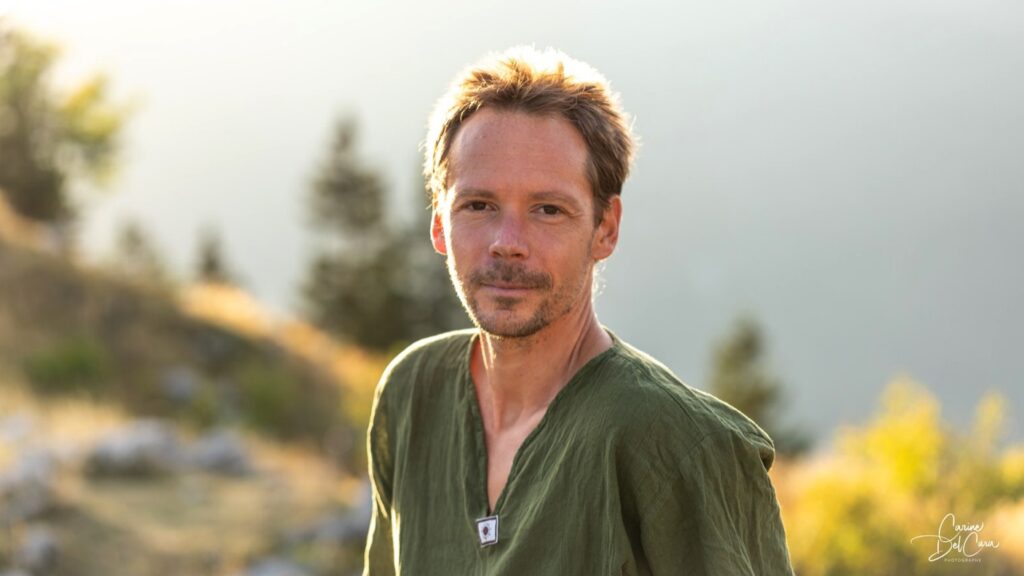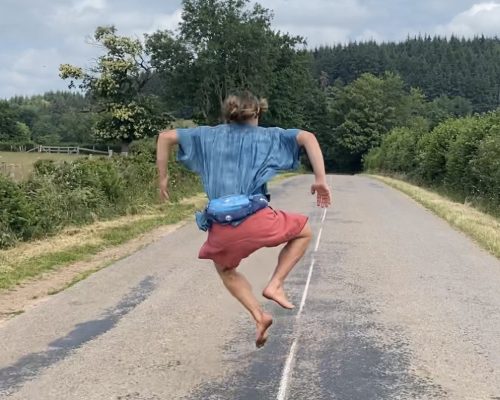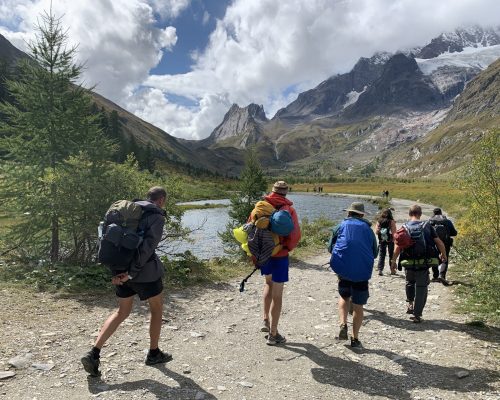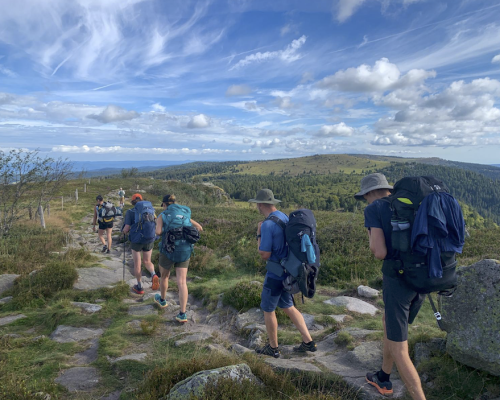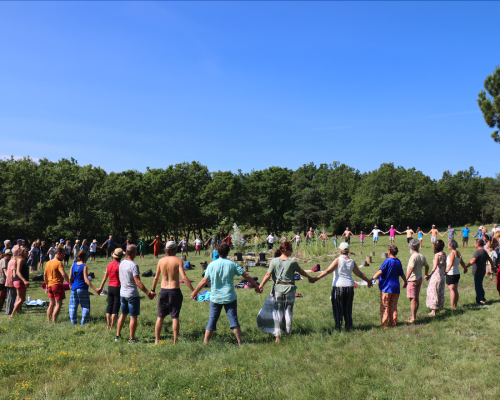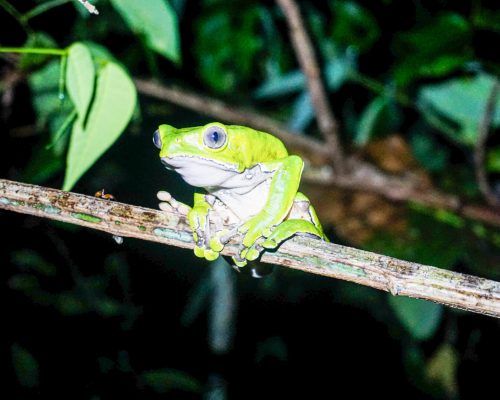Please note: this video is currently in French, but you can activate YouTube’s auto-generated subtitles in English while we work on providing a dedicated English version.
“Look at the birds of the air: they neither sow nor reap, nor gather into barns; and your heavenly Father feeds them. Are you not of more value than they?” Gospel of Jesus Christ according to Saint Matthew, chapter 6, verse 26
“I teach men a new will: to consciously want the path that man has blindly walked, to judge it good and no longer to stray furtively from it, as the sick and the dying do.” Thus spoke Zarathustra, Nietzsche
“In the past, believing that people of color were truly human and should be treated humanely was considered madness. Today, it is seen as exaggerated to claim that one of the duties imposed by rational ethics is to respect what lives, even in its lower forms. But one day, it will be surprising that it took humanity so long to admit that careless depredations caused to living beings are incompatible with ethics.” Albert Schweitzer (1875 – 1965), Alsatian physician and philosopher, Nobel Peace Prize laureate in 1952
When I returned from the Loire journey, I urgently read the book by Bernard Clavière, which had the effect of an electric shock on me. On a whim, as I know I can have, I permanently purged from my cupboards all animal-derived foods (meat, fish, dairy products, eggs), cereals, and legumes, and of course, refined sugar; all suddenly and irrevocably fallen from grace. According to this new paradigm that I wished to embody, only fruits, vegetables, nuts, and sprouted seeds remained at my disposal, which I also decided to eat exclusively raw.
This is what is called a plant-based and living diet because nothing is cooked and everything is of plant origin.
The funny people who eat this way, sometimes called “raw vegan,” lead a simplified life: nothing to cook and very few packages to manage. The logic underlying this revolution was quite simple and took its origins far back, to the origins of humanity, before regrettable centuries of culinary traditions obliterated our instinctive knowledge of the laws of life.
At the dawn of humanity
Let us remember: The evolutionary history of human beings is still far from being fully established, but the oldest fossil found of the genus Homo dates back 2.8 million years with Homo habilis, named for its skill in handling and creating its own tools. As for modern humans, Homo sapiens, they are believed to have appeared 200,000 years ago. We are part of the great family of hominids, which appeared 7 million years ago, encompassing animal species such as bonobos, chimpanzees, gorillas, and orangutans, not to mention all the extinct species including Neanderthal.
Excluding humans, all members of our family have maintained a diet based on fruits, vegetables, and seeds (between 95 and 99%) with a marginal consumption of insects and small animals (between 1 and 5%). This does not prevent them, by the way, from having canines much more developed than ours. Emerging humanity, before the advent of Homo habilis, was therefore raw foodist (eating only raw foods) and consumed almost exclusively fruits, tubers, young shoots, and leaves.

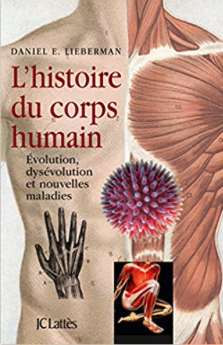
Then, about 2.5 million years ago, the proportion of meat in our diet gradually increased, leading some to say that the Paleolithic diet, which favored meat, is the ideal diet for contemporary humans. This ability acquired during evolution to digest more meat than their constitution initially allowed was crucial in the emergence of modern humans and their emancipation across the planet. Alongside this change in dietary habits, early humans developed weapons for hunting and became exceptional runners (see “The Story of the Human Body” by Lieberman).
600,000 years ago, a new string to their bow was added to ancestral techniques with the domestication of fire (some estimates place this domestication at 1.7 million years ago) and cooking, particularly of vegetables. Contrary to popular belief, cooking meat was not essential, as evidenced recently by the Inuit (or “Eskimos”), who consumed raw meat. Richer in vitamins than cooked meat, this raw foodism was essential for survival near the polar circle, where 80 to 90% of the diet was carnivorous. In contrast, cooking leaves, roots, and tubers facilitated their digestion and allowed for a large consumption of plants from which maximum glucose was derived (soluble fibers turn into sugars when heated), this fuel being essential for the brain. In our modern world, the decrease in our caloric needs as well as the selection of many tender cultivars (fruits and vegetables) with an incomparable sugar richness compared to the wild flora of the Paleolithic makes cooking food inappropriate because it decreases, among other disadvantages, the bioavailability of micronutrients.
From gatherer to gatherer-hunter
We then had the means to leave the tropics and set out to conquer our beautiful planet. For this, it was essential to ensure a sufficient supply of meat, the only food available in all seasons at all latitudes. Humans then clearly distinguished themselves from other hominids, becoming nomadic and hunter-gatherers. From the equator to the Arctic Circle, the share of carnivorous food went from a quarter to almost totality, a latitudinal gradient still marked today. Hunting, with the cooperation, analysis, and abstraction skills it requires, has been a determining catalyst for intelligence.
Bipedalism, tool use, and hunting have favored the development of the human brain, both by stimulating our cognitive abilities, cooperation, and inducing an increased food intake. The brain, which runs exclusively on glucose, is indeed the organ that consumes the most energy (one-fifth of daily metabolism in an adult).
The colonization of Europe by Homo sapiens, which occurred late, only 40,000 years ago during the Ice Age, is indicative of the resilience and intelligence of our distant ancestors who actually had a larger brain than ours. The brain of modern humans is indeed 15 to 20% smaller than that of Cro-Magnon who lived 30,000 years ago.
Put yourself in their shoes for five minutes, no more because you would succumb, and try to imagine their life in Europe during the glaciation with rudimentary techniques, the risks associated with hunting, and no rescue center.
According to recent and controversial studies on contemporary indigenous populations, the life expectancy of our Paleolithic ancestors would have been 50 or even 60 years!
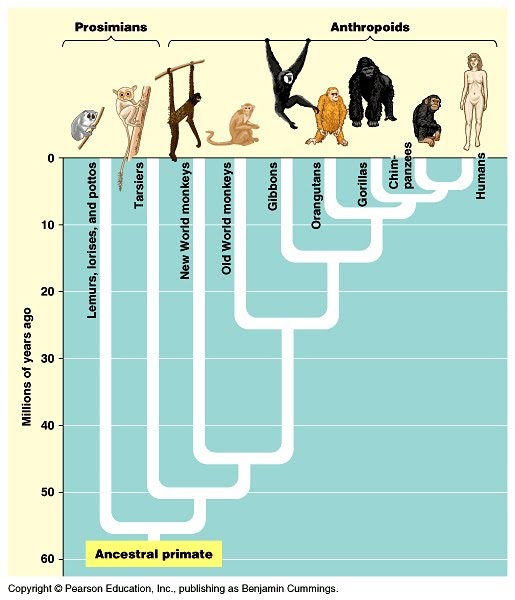
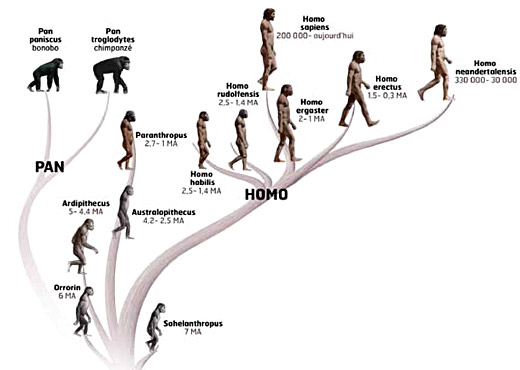
It is undoubtedly as a result of this harsh natural selection that we still inherit today a body of remarkable strength and adaptability. That Paleolithic humans had a “respectable” life expectancy is not, for my part, a revelation. Consider, indeed, a wild animal in its original ecosystem, stable and pollution-free, do you seriously think you can increase its life expectancy through medical science and comfort? That in very rare cases (an injury or prolonging the end of life) and the best you could do would be to leave it in peace.
So, why be surprised that our ancestors were sturdy fellows who could live to an old age?
From gatherer-hunter to farmer
The Paleolithic, which began about 2.5 million years ago, ended 12,000 years ago along with the glaciation, a pivotal period that corresponds to the gradual (but not systematic) emergence of agriculture and inherent sedentarization. Then began the Neolithic age marked by agrotropism. It is probably at this moment that things became complicated for us, if they had been simple before…
No specialist knows definitively why agriculture was established when it involved more work compared to a subsistence based on hunting and gathering. This new form of organization may have arisen spontaneously when the population within the nomadic tribe reached a critical threshold that required a new social organization, even as the techniques of germination, cutting, and breeding were sufficiently mastered (probably already for several thousand years) to initiate sedentarization. This mutation in our way of life was accompanied, ipso facto, by a new diet.
Humans began to consume cooked cereals and legumes in quantity as well as dairy products, a unique occurrence in the animal kingdom.
This modification of the diet occurred too quickly in light of genetic mutations for us to fully adapt. In terms of evolution, what are 10,000 years compared to 4 million years of a flexitarian raw vegan diet followed by 3 million years of a paleo diet? Reduced to the existence of a human living 100 years, that represents 45 days of their life. A bit short to adapt…
Farewell to the Garden of Eden
In contrast, agriculture and sedentarization exempted part of the population from activities directly related to subsistence that had until then occupied all individuals. Craft, political, military, and commercial activities began to germinate, all the attributes of civilization that were once in embryonic form among nomads. Humanity, which was civilizing, then became acquainted with epidemics (hygiene remained to be discovered), famines (no supermarkets or international aid at the time when the garden failed), inequalities (emergence of wealth and social hierarchy), and wars (the warrior class emerged to protect its wealth from foreign intrusions).
In addition, as previously mentioned, an unsuitable diet (read this article addressing the issues surrounding starches) led to a significant drop in life expectancy at that time despite technical progress and increasingly sophisticated knowledge.
Health obeys the laws of life and is indifferent to our inventions. Perhaps it was the price to pay for civilization to develop what we are proud of today: art and science, its two successes.
Even if science and technology have caused significant damage to our environment, I think there is nothing to regret. Western civilization has bet everything on the limited intelligence of the mind, without consciousness, to the absurd. But only the intelligence of life, which inhabits every living being, can bring us back to balance, health, and love. A task that the brain, no matter how efficient, is incapable of performing. A science without conscience is but the ruin of the soul, as Rabelais wrote…
Humanity was clearly irresistibly driven by the superior forces of evolution. When we observe how quickly the last tribes of hunter-gatherers, who lived comfortably and peacefully, abandoned their way of life to dissolve into modernism, we can only be convinced that this is a necessary passage for humans.
We have looked enough at the past; let us now try to sense the future, to decode the laws in force so as not to suffer them.
Recently, with the emergence of junk food and systematic mechanization leading to a reduction in physical activity, humanity is experiencing an unprecedented gap between its needs related to its biological constitution inherited from evolution and its modern daily life, largely cut off from nature. So much so that today, we ingest (sometimes without realizing it) foods that bear no resemblance to real food, moreover, in quantities largely overestimated compared to our declining energy needs.
Towards a return to our origins?
One simple and free solution, which resolves many of the ills of our society, consists of changing our eating habits based on individual awareness. Humanity is on the brink of an evolution that will lead it towards a different kind of Homo. As in the past, this will involve a change in diet and an evolution of the brain areas of our brain.
Health scandals, pollution having penetrated the entire food chain even in the most remote places on the planet, allergies, cancers, and other constantly progressing diseases that science cannot stem, not to mention the new generations intolerant to many substances, all contribute to humanity questioning the contents of its plate and looking mindfully at the health consequences of the food it consumes.
Anthropological knowledge unequivocally shows that a diet primarily raw with occasional animal products is suited to our biology. In any case, millions of individuals eat this way around the world and throughout the ages, proving to everyone that it is possible even if there are pitfalls.
Some examples: among athletes (Carl Lewis, Scott Jurek, Serena Williams…), among artists (Natalie Portman, James Cameron, Avril Lavigne…), among politicians (Gandhi, Bill Clinton), among intellectuals (Leo Tolstoy, Thomas Lepeltier), among scientists (Jane Goodall, Matthieu Ricard), among entrepreneurs (Steve Jobs), and finally, among doctors and nutritionists (Dr. Jérôme Bernard-Pellet, Dr. Caldwell Esselstyn, Dr. William Roberts…).
Humans are at a new turning point in their history, the foundations of a new civilization based on love and co-creation are being established, the stakes of which are our survival. It is time to restore the nobility of cooperation, compassion, and altruism, expanding it to the entire sphere of life, and keeping in mind that we are all in the same boat. Plant-based and living food is just one component of this new paradigm. It is a fascinating and complex subject with endless questions. Like the implementation of this diet when living at high latitudes where access to fruits and vegetables is difficult and requires costly and polluting transport. In the meantime, transporting fruits and vegetables by boat or truck has a less pronounced environmental cost than meat production, even if it comes from the nearby pasture!
This new paradigm represents no sacrifice for humans; on the contrary, it is the opportunity to let go of what no longer serves us and to open up to an exciting new era, that of Aquarius…
